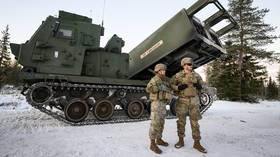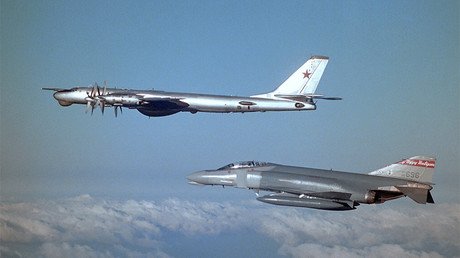Developing missiles or seeking ‘better’ deal? Trump sends mixed signals to Russia over INF treaty
The US hopes for a “much better” deal in place of the INF treaty, Donald Trump has said. At the same time, he vowed to develop a “military response” to alleged Russian violations – which the US has been doing for years, actually.
The US president has sent quite mixed signals over what exactly he sought to achieve with the announcement of withdrawal from the Intermediate-Range Nuclear Forces (INF) Treaty. On Friday, Washington suspended its participation in the landmark agreement and promised to leave it altogether in 180 days unless Russia gives in to its demands.
READ MORE: US withdraws from INF Treaty in 180 days – Pompeo
“I hope that we're able to get everybody in a big and beautiful room and do a new treaty that would be much better. Certainly, I would like to see that,” Trump told reporters at the White House.
Earlier in the day, however, he vowed to “move forward with developing our own military response options” against Russian alleged violations. Moscow, on its part has vehemently denied the accusations, even showcasing the missile the US claimed to be in violation of the INF agreement in an unprecedented step towards transparency.
The 1987 deal between the US and Soviet Union bans ground based missiles – both ballistic and cruise ones – with ranges between 500 and 5,500 kilometers. Washington and Moscow have repeatedly accused each other of violating the agreement – with the US claiming that Russia covertly produced banned systems and the latter stating that the so-called US missile-defense systems, deployed in Europe, were actually capable of launching offensive munitions.
While Trump’s hopes for a “better” treaty are apparently a part of his much bragged about “art of the deal” strategy, the threats of developing some “military response” are actually an open secret. Over the past few years, the US defense budgets have provided funds to the research and development of the INF-banned weapon systems – while routinely blaming Russia for it.
For example, the National Defense Authorization Act for fiscal year 2018 allocated $58 million to counter Russia’s non-compliance with the INF. The measures against the alleged activities included a “research and development program on a ground-launched intermediate-range missile,” which, somehow, should not violate the treaty itself.
Also on rt.com US has put its allies in an extremely dangerous situation – Russian officialsThe record-breaking defense budget for 2019, in its turn appears to be a bit more subtle about such activities. Countering Moscow now simply includes“providing additional funds” for capabilities outlined in the 2016 budget, as well as “seeking additional missile defense assets in the European theater.”
The document from 2016, for its part – you’ve guessed it – includes development of the “strike capabilities to enhance the forces of the United States or allies of the United States, whether or not such capabilities are in compliance with the INF Treaty.”
Like this story? Share it with a friend!














